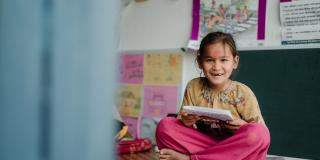
Our inclusive and resilient education work gives every child the opportunity to learn literacy and numeracy at the right level. Since 2022 we've reached almost 3.6 million people through our education programme.* Education is a fundamental human right for all, yet 250 million children are still out of school worldwide.
Inclusive education is at the core of our programming. By tackling the intersecting barriers to children accessing education, we can help children to realise their rights to quality education and achieve their full potential.
Our work supporting education
Our projects focus on delivering girls’ education and early childhood care and education (ECCE) for the most marginalized children, especially those with disabilities, and those facing intersecting challenges such as poverty, climate change, political instability and child marriage.
We focus on early childhood education and basic literacy and numeracy skills, laying the foundations for children to have a brighter future. By investing in children at this crucial time in their development, our programmes build resilience for later in life.
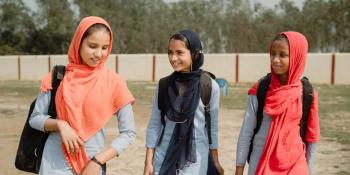
Girls education
Access to inclusive and quality education for girls essential to promoting gender equality and empowerment. Education gives women and girls the opportunity to access social, economic and political opportunities.
Early childhood care and education (ECCE)
ECCE addresses the period from birth to 8 years old. It is an key stage for education intervention because it capitalises on a period of rich brain development for children.
Our impact in education 2022/23
This year, around the world, VSO has made significant contributions to improving learning outcomes and recovering the learning losses that children have experienced because of the COVID-19 pandemic. We've also been working to break down social barriers to inclusive education and to strengthen education systems.
The education challenges facing the world’s children
The learning crisis
Even before COVID-19, the world was facing a learning crisis, with nearly 6 out of 10 ten-year-olds in low and middle-income countries suffering from learning poverty - meaning they were unable to read and understand a simple story. The COVID-19 pandemic, school closures and disruptions have deepened the crisis, sharply increasing learning poverty and exacerbating the existing inequalities in education.
Children who cannot read and understand a simple text will struggle to learn anything else in school. They are more likely to repeat a grade and more likely to drop out of school. They are less likely to benefit from further training and skills programs. At a national level, this will lead to worse health outcomes, greater youth unemployment and deeper levels of poverty. Every child deserves the dignity and opportunity that foundational learning brings.1
We need a global effort to tackle the learning crisis head on. Together, we can help every child gain basic reading and maths skills and unlock their potential.
Gender inequality
Girls universally continue to face systemic barriers which intersect with poverty, geography, disability and minority status that prevent their access to quality education. Around the world, 12 million girls are married before the age of 18 every year. Child marriage is a practice deeply rooted in gender inequality, and exacerbated by poverty, political insecurity and harmful social norms.
Child marriage leads to girls failing to achieve their education goals and having to drop out of school due to falling pregnant. Family attitudes often devalue the importance of girls’ education.
Girls are also more likely to face setbacks in education due to domestic abuse, denial of rest and nutritious food, and period poverty. Psychological violence also leads to girls feeling incapable of making decisions and never-ending amounts of household chores and unpaid work limits the time they’re able to allocate to their learning.
Climate change and girls education
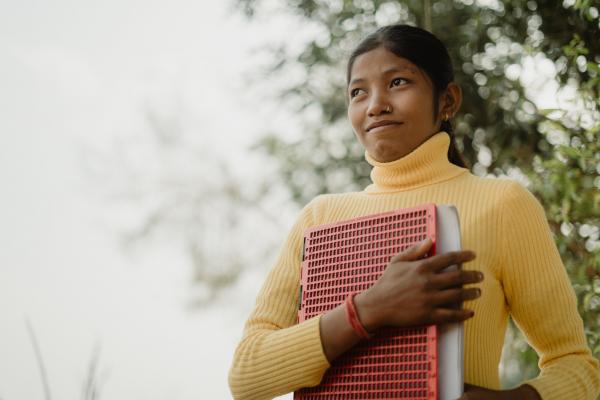
The impact of climate and environmental change has also exacerbated poverty and inequality and drives conflict as natural resources are increasingly scarce. Girls and marginalised groups are often worst affected. Harnessing the power of education is a powerful tool to empower communities on the frontlines of the climate crisis to be able to increasingly adapt to hostile environments.
The 2022 Pakistan floods left an estimated 22.8 million children in Pakistan unable to attend school. When people experience this kind of disaster they focus on immediate survival – finding shelter, accessing essential healthcare, and ensuring their families are fed.
Education becomes a secondary concern and is also often neglected by humanitarian response planning and girls and those with disabilities are the ones most likely to suffer.
Data from VSO’s child-led risk assessments reveals climate-related hazards such as floods, drought, extreme weather, and food insecurity reduce girls’ access to education, quality of education, and safety. For girls, interruptions to schooling have a disproportionate impact. They are often exposed to early marriage or forced to do agricultural or housework rather than study and during climate emergencies, instances of gender-based violence and people trafficking increase.
According to research by Malala fund, by 2025, climate change will be a contributing factor in preventing at least 12.5 million girls from completing their education each year. 2
Disability exclusion and discrimination
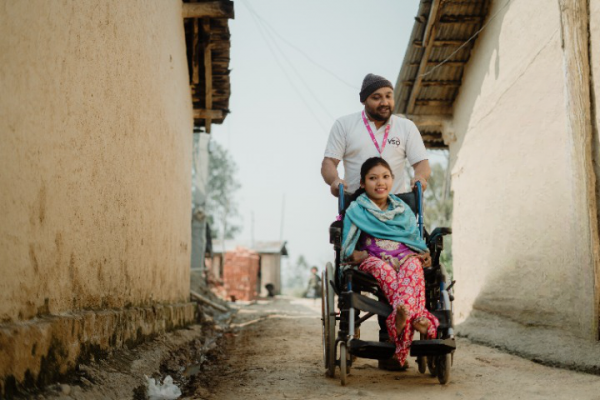
Around the world, children with disabilities are being denied their right to an education. With a shortage of properly trained staff, inaccessible schools, and lack of appropriate learning resources, girls face barriers at every turn.
Those with disabilities are often dismissed by their communities and not given the chance to reach their full potential. Girls with disabilities face additional social obstacle. Getting an education is the best way to safeguard them from the dangers of forced marriage and gender-based violence, but most schools lack the resources or knowledge to support them.
Girls with disabilities are far more likely to experience sexual abuse and neglect than their non-disabled peers and face greater obstacles reporting abuse and accessing support services. Access to health services in low-income countries are often limited, and those with disabilities can face discrimination from health services and technology that could help their impairment.
Lack of funding
Funding for international development is significantly reducing. There are worrying trends of ODA contributing countries such redirecting their aid budget to other ‘high-priority’ areas such as responding to the war in Ukraine or catering to refugees at home.
This is in the context of already low share of education in total aid. The share of education in total aid fell sharply from 14.7% in 2003 to 9.7% in 2013, where it has remained since, despite strong advocacy efforts to prioritise education in aid portfolios.3
Volunteering for development
VSO has proven approaches and a successful track record of realising the rights to quality education for marginalised children, including girls and children with disabilities, in multiple countries and contexts, including in conflict and humanitarian settings and with out-of-school children.
VSO’s blended volunteering approach is particularly suitable for education projects as it draws upon individuals with international pedagogical skills, country-specific policy making, and school management experience. These skills are complemented by local volunteers who understand the specific local and cultural contexts and lead initiatives to strengthen education systems. In practice, this means that the various barriers to education can be addressed so education systems can be more resilient to various types of shocks and stresses.
VSO’s approach to education isn’t one size fits all – our solutions are flexible and adaptable, with trained local volunteers supporting teachers and families so that every child can benefit fully for generations to come. Research from a collaboration between VSO and the Centre for International Development at Northumbria University, has proven just how successful the blended volunteering model can be.
Our projects
Find out more about our current and former projects helping to ensure inclusive education for all.
Stories from education

The two volunteers empowering girls and young women in Mozambique
Nelma and Carmirene and are two volunteers working on VSO's EAGLE project in Mozambique. For Nelma and Carmirene, education is not just about school, it is about meeting people where they are and using the right tools to challenging harmful norms. Here are their stories.
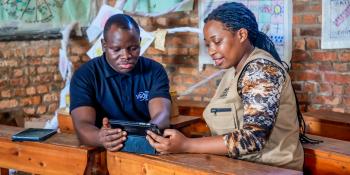
Using play to inspire learning in Rwanda
Learn how volunteers like Celestin are supporting children in Rwanda to learn through play. Children are taught problem solving, strategic thinking and inter-personal skills, all while enjoying the learning process.
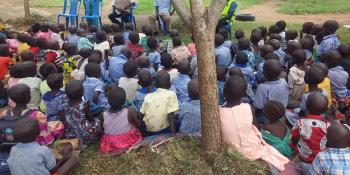
Meet Faridah, the teacher trainer making a difference in a Ugandan refugee settlement
Faridah volunteers on VSO's early childhood education project working in the BidiBidi refugee settlement in Uganda, as a teacher educator. Learn more about her volunteer journey.
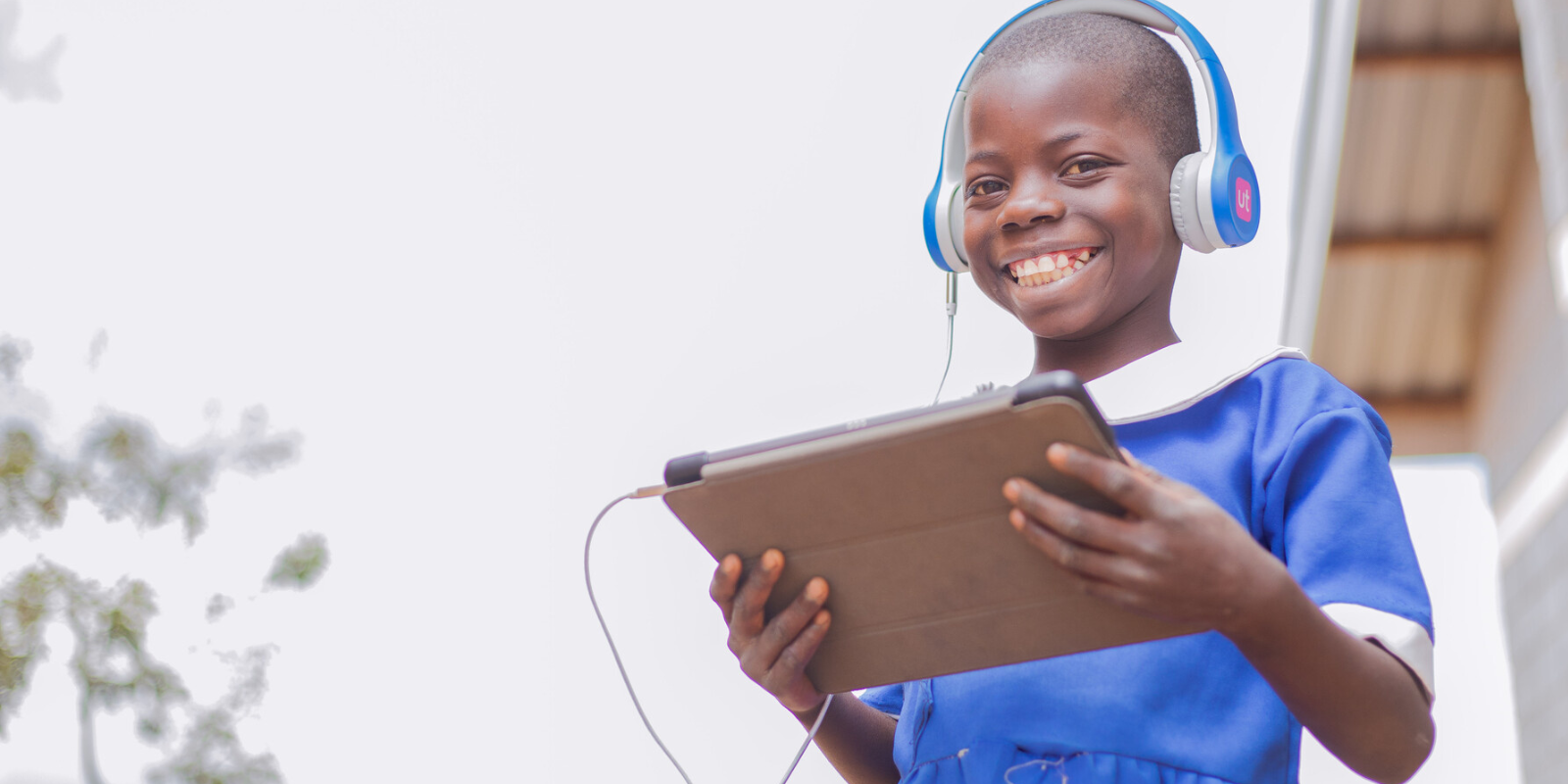
Support us with a donation
*Numbers represent impact achieved in the first two years of VSO’s current strategic plan.
Footnotes
- Malala Fund - A greener, fairer future: Why leaders need to invest in climate and girls’ education (2021)
- World Bank and UNICEF - Commitment to Action on Foundational Learning
- UNESCO - Report on financial aid (2021)
- World Bank- The World Development Report 2018 LEARNING to Realize Education’s Promise
- The Education Comission - the Learning Generation. Report by the International Commission on
Financing Global Education Opportunity - Education Development Trust - Education, Girls’ Education and Climate Change (2021)
- Foreign, Commonwealth and Development Office (FCDO) - The Girls Education Challenge (GEC)
